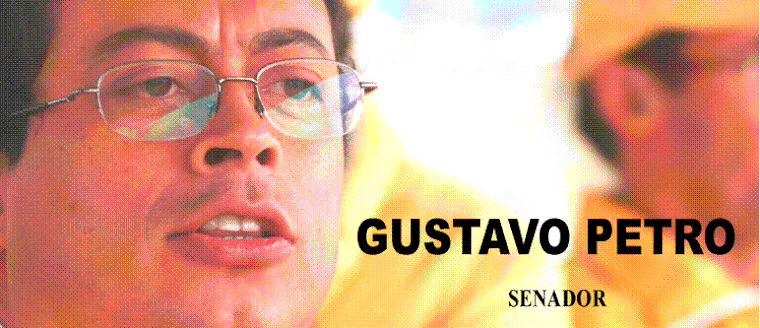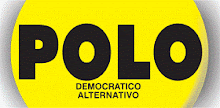Comunicado a la opinión pública
A raíz de un artículo publicado en el diario The Financial Times y de unas declaraciones que yo entregué ayer a la emisora '
Al momento de conceder la entrevista a
Por lo anterior, me permito aclarar:
1° Nunca he afirmado ni afirmaré que el periodismo colombiano haya sido cómplice de los paramilitares.
2° Lo que dije, y reconozco que pudo haber sido una imprudencia, es que el ex jefe paramilitar Salvatore Mancuso aseguró que las empresas Bavaria y Postobón tenían que pagar a los grupos paramilitares en algunas regiones del nuestro territorio.
3° Como es de público conocimiento, tanto Bavaria como Postobón son empresas dueñas de varios respetables medios de comunicación del país. Eso, sin embargo, no equivale a decir que sea política de estas dos empresas apoyar a grupos al margen de la ley.
4° Mal haría yo en afirmar que los periodistas colombianos cohonestan con los paramilitares, cuando me precio de que algunos de mis mejores amigos son comunicadores. Además, cómo olvidar la cantidad de periodistas colombianos que, en su afán de luchar contra la delincuencia, han ofrendado sus vidas o han tenido que dejar el país.
5° Sería una necedad no reconocer que de no haber sido por las denuncias de los medios de comunicación, el escándalo que hoy conocemos como la parapolípitica a lo mejor nunca se hubiera iniciado en los estrados judiciales.
6° Si mis declaraciones fueron malinterpetradas, o yo no fui preciso en el momento de hablar, les ofrezco disculpas a las personas que pudieron sentirse afectadas o molestas con las entrevistas que sobre este tema concedí.
7° No hay duda de que la libertad de prensa es uno de los mecanismos clave de cualquier democracia. En Colombia, por fortuna, hay una prensa seria y responsable que ha sabido ganarse ese derecho universal.
Cordialmente,
GUSTAVO PETRO U
Senador de
www.ft.com
Uribe takes military aid plea to US
By Benedict Mander
Published: June 6 2007 03:00 | Last updated: June 7 2007 23:31
President Alvaro Uribe arrives in Washington this week to continue his campaign to persuade Congress to continue military aid to Colombia, a draft bill for which is announced on Wednesday. But his battle is being undermined by a deepening political crisis at home.
In what has become known as the "para-politics" scandal, growing numbers of ministers and officials have been accused of co-operating with rightwing militias. Recent revelations confirm suspicions long-held by Democrats in Washington of government ties with paramilitaries, strengthening their resolve to cut military aid in the bill to be debated later this month.
ADVERTISEMENT
The scandal is hurting Mr Uribe's bid to secure a free trade agreement with the US, with politicians being linked to killings of trade unionists by paramilitaries.
However, said Gustavo Petro, the leftist opposition senator who has been most active in denouncing the scandal, concerns that the crisis could cause any immediate damage to Mr Uribe's government are exaggerated.
"The government won't be affected in the short-term, as the Colombian people on the whole don't understand the seriousness of what is happening," said Mr Petro, a former guerrilla of the disbanded M-19 group. He argued that the media have conditioned the public to believe that the leftwing guerrilla group, the Farc, is to blame for most of Colombia's problems, while playing down the paramilitaries' role. The owners of some media groups have been accused of financing by the paramilitaries.
Mr Uribe's approval ratings remain at about 75 per cent. "Colombians will not punish Uribe for this, because for the first time their country is safer while the economy has been performing well," says Jorge Londoño, a local Gallup pollster. "They have always known that their politicians are corrupt."
But popularity does not necessarily translate into strong government. "Since his re-election [in 2006] Uribe has been boxed into a corner, he hasn't done anything but defend, defend, defend," says Mr Londoño.
Pedro Medellín, a political scientist in Bogotá, says that Mr Uribe is "besieged" by numerous conflicting interest groups: unruly politicians, jailed paramilitary leaders, the army, business leaders, human rights groups, even the US Congress - leaving little room for manoeuvre. "Uribe's popularity is no use to him at all. It is a weak government with the appearance of being strong," he says.
The "para-politics" crisis could complicate matters further, says Mauricio Romero, an expert on the paramilitaries. He says the peace process, which encourages paramilitaries to confessin return for reduced sentences, is compromised.
"The paramilitaries don't know how much to confess. If they don't tell everything, they risk judges denying them benefits, or even being extradited. If they do tell everything, everyone will end up being guilty - and ultimately no one," Mr Romero says.
If the extent of government involvement with paramilitaries becomes public, "things will get very complicated, and the executive's ability to govern will be seriously weakened", he adds. Paramilitary chiefs say they have had ties with as much as a third of congressmen, almost all pro-government.
But other analysts, such as Alfredo Rangel of the Foundation for Security and Democracy, argue Colombia's institutional strength will enable compromised politicians to be replaced without affecting the day-to-day functioning of government.
Yet many believe that Mr Uribe's greatest threat is the economy, which is showing signs of strain.
Mr Petro says Colombia is in a "narco-bubble", with growth underpinned by a strong inflow of dollars from drug trafficking. This has strengthened the currency - whose 30 per cent appreciation in the last year has damaged exports and employment - and bolstered public spending, triggering a boom in consumer spending.
With productive capacity stretched, that is putting pressure on inflation. Morgan Stanley"To bet that the bubble won't burst before the next elections in 2010 is very risky," says Mr Petro.
Background
Colombia's complex armed conflict originally pitted the government against leftwing guerrillas, including the Revolutionary Armed Forces of Colombia (Farc) and the National Liberation Army (ELN).
Paramilitary groups emerged in the 1980s to counter the guerrillas.
In 2005 most paramilitary fighters were demobilised but while peace talks are under way with the ELN, there is little progress with the Farc.
Copyright The Financial Times Limited 2007


1 comentario:
No se arrepienta de sus afirmaciones aunque entendemos que el diálogo con los medios se debe manejar con guante de seda. A propósito, demostró la altura política en la entrevista dada a la W.
Es verdad. Los medios, todos, manipulan a la opinión pública. Recuerdo como cubrieron al gobierno en lo del Palacio de Justicia. Qué tal la campaña de desprestigio, justa a mi modo de ver, contra el gobierno de Samper.
Sin clemencia contra el gobierno de Pastrana, aunque en muchas de sus actuaciones así lo merecía.
Pero tan laxos, tan indulgentes y solidarios con el actual gobierno implicado en los mayores escándalos de la historia, con responsabilidades muy grandes por delitos contra la sociedad civil, muchos de ellos de lesa humanidad y con niveles de corrupción administrativa y política jamás vistos.
Este, parece ser el gobierno de la impunidad!
Publicar un comentario